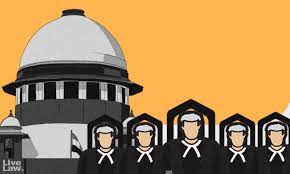CONSTITUTIONAL LEGITIMACY AND JUDICIAL REVIEW: FROM KESAVANANDA BHARATI TO IR COELHO CASE
AUTHOR – YASHASWANI PARASHAR, STUDENT AT UPES
Best Citation – YASHASWANI PARASHAR, CONSTITUTIONAL LEGITIMACY AND JUDICIAL REVIEW: FROM KESAVANANDA BHARATI TO IR COELHO CASE, ILE CONSTITUTIONAL REVIEW, 2 (3) of 2023, Pg. 26-29, APIS – 3920 – 0006 | ISSN – 2583-7168.
INTRODUCTION
The Constitution of a nation connotes a structure of fundamental principles that are legitimately expected to protect the will of the people. The principle of constitutional legitimacy concerning actual justice has the purpose of creating good law.[1] Corollary to this structure, the constitution of India in Part III envisages Fundamental rights for the citizens of India. Justice Subba Rao connoted these fundamental rights characterized as “primordial rights necessary for the development of human rights”.[2] One of the fundamental rights in the constitution under Article 31-B was introduced to bring agrarian reforms in 1951 through the first constitutional amendment. As expected, aimed to protect the land under the control of zamindars and give power of acquisition to the appropriate government. Article 31B is also seen as the highlighted provision of Part III of the Constitution of India because it initially constituted 13 land reform laws and protected them from the purview of judicial review. However, surprisingly the scope of the schedule has been stretched down as broad as adding reservation, trade, and industries, counting to 284 laws in the ninth schedule. The reason is questionable in itself as from time to time the laws of different subject matter which intended to escape Part III were dumped into Schedule 9 and it otherwise came to be known as the ‘Constitutional Dustbin’.[3]
[1] A Natural Law Theory of Constitutional Legitimacy: The Basic Structure Doctrine and “Good Reasons for Action”, 5.2 CALQ (2021) 11.
[2] Golak Nath v. State of Punjab, (1967) 2 SCR 762.
[3] Rajeev Dhavan, Constitutional Dustbin, TIMES OF INDIA, (Jan. 22, 2007), http://timesofindia.indiatimes.com/edit-page/Constitutional-Dustbin/articleshow/1359898.cms.
